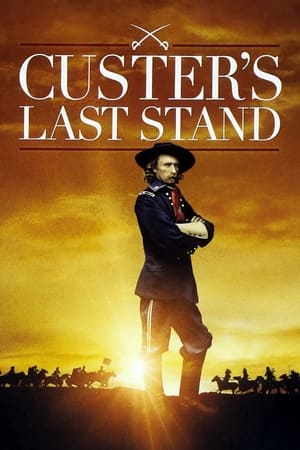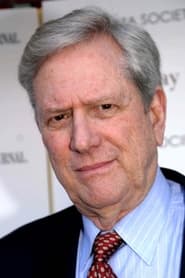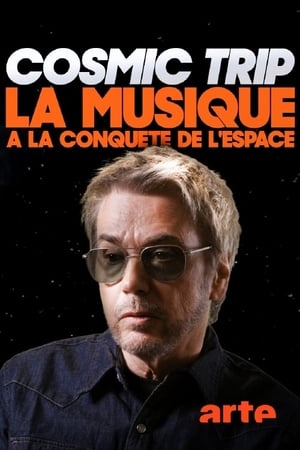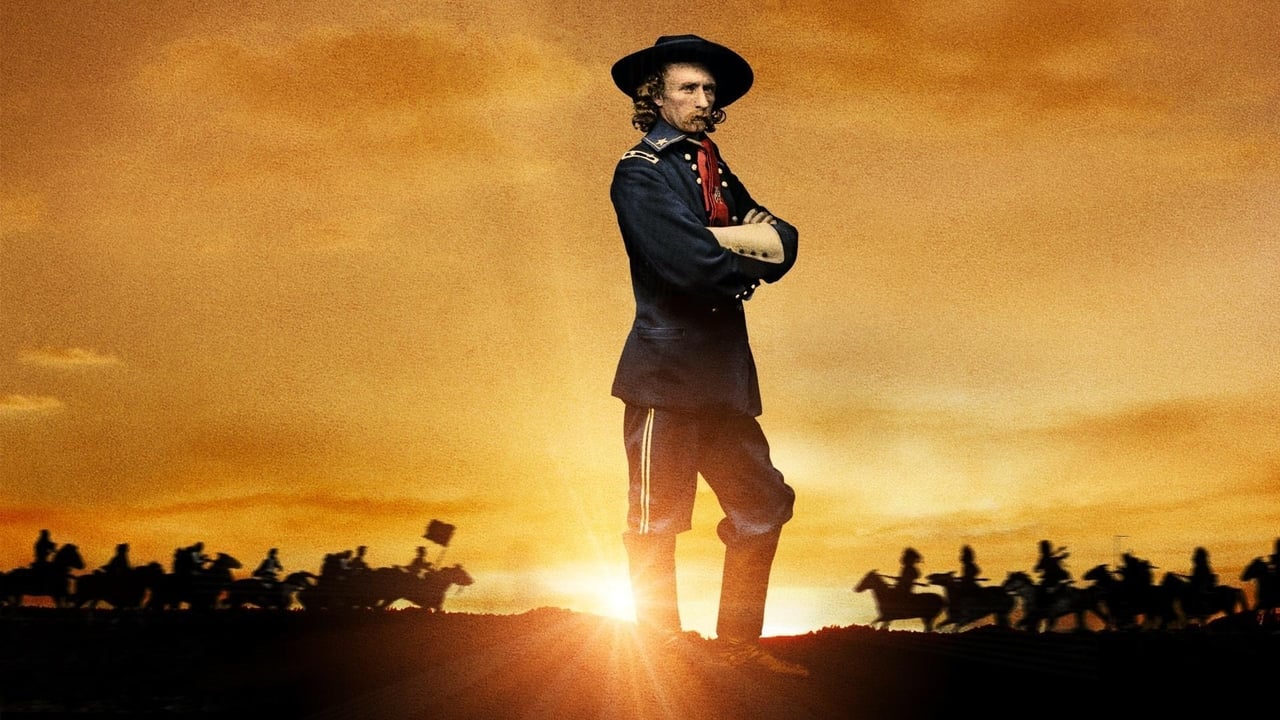
Custer's Last Stand(2012)
Desperate for fame. Reckless for glory.
Follow General George Armstrong Custer from his memorable, wild charge at Gettysburg to his lonely, untimely death on the windswept Plains of the West. On June 26, 1876, Custer, a reputation for fearless and often reckless courage ordered his soldiers to drive back a large army of Lakota and Cheyenne warriors. By day's end, Custer and nearly a third of his army were dead.

Movie: Custer's Last Stand
Recommendations Movies
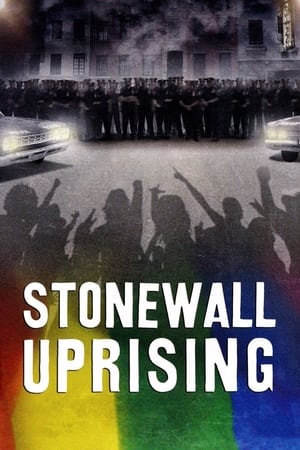 6.1
6.1Stonewall Uprising(en)
Stonewall Uprising is a 2010 American documentary film examining the events surrounding the Stonewall riots that began during the early hours of June 28, 1969. Stonewall Uprising made its theatrical debut on June 16, 2010 at the Film Forum in New York City.The movie features interviews with eyewitnesses to the incident, including NYPD deputy inspector Seymour Pine. The film was produced and directed by documentarians Kate Davis and David Heilbroner, and is based on the book by historian David Carter, Stonewall: The Riots That Sparked the Gay Revolution. The title theme is by Gary Lionelli.
 3.3
3.3Cold Hard Cash(en)
Watch what happens when two beautiful bad girls with no option are put in a desperate situation.
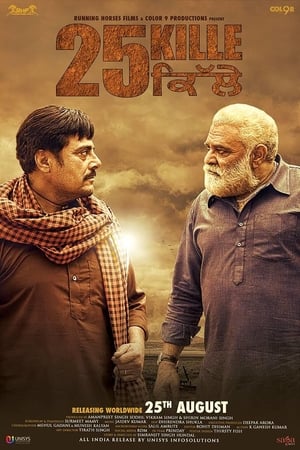 6.0
6.025 Kille(pa)
Four brothers receive news of an inheritance and must contend with an unscrupulous landowner to receive their birthright.
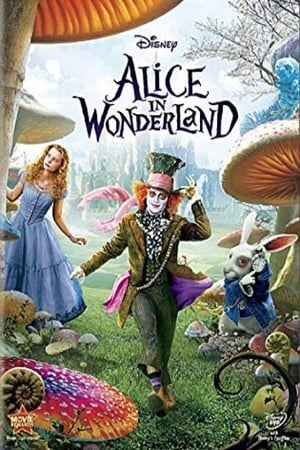 6.6
6.6Alice in Wonderland: Effecting Wonderland(en)
A piece that takes a more general focus on the varied "disciplines" at work in the picture, from the different styles of CG-animation to motion capturing -- and actors performing with nothing there
Pido - Bienvenue chez les Corses... Et bonne chance !(fr)
Il revient enfin sur scène avec un one man show intitulé : « Bienvenue chez les Corses et bonne chance ! »… Vous l’aurez compris, l’île de beauté est le thème principal de ce spectacle. Un voyage au cœur de la Corse que Pido nous propose avec son style inimitable. Que ce soit à travers des personnages que l’on connait déjà, ou à travers des « nouveaux venus », plus fous les uns que les autres, voici un spectacle qui raconte la Corse et les Corses et qui s’adresse à tout le monde.
 5.0
5.0Yumesuke's Dream-Senryo Souvenir(ja)
Yamate Kiichirō published many literary masterpieces, including "Yumesuke and the Gift of 1000 Ryō". An adaption of this masterpiece of a novel that depicts the activities of Yumesuke, a young and kind-hearted young man who has strong skills but hates fighting, will be staged in the Takarazuka Revue as an exciting period drama.
 7.0
7.0Cine Gibi 7: Bagunça Animal(pt)
Trying to escape his bath, Monicão ends up hiding in the movie theater. Mônica can't find her pet in the dark, so she asks Franjinha to play some short films that might lure the dog out of hiding.
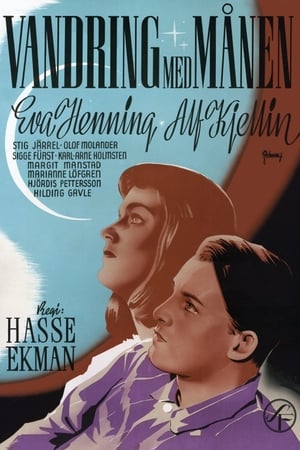 6.5
6.5Wandering with the Moon(sv)
Dan, aged 19, leaves his home after a quarrel with his father. At the side of the country road he meets a traveling theater company who has run out of money. He falls in love with the young actress Pia and together they leave, meeting a string of peculiar characters: a vagabond, a friendly vicar and a cynical adventurer.
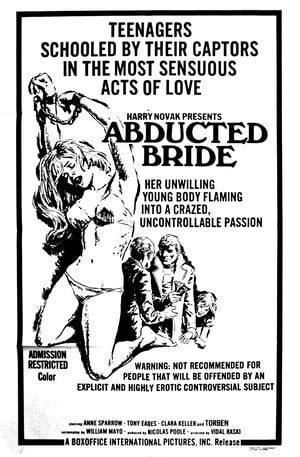 5.0
5.0The Abducted Bride(en)
The unrated US version of The Sinful Dwarf. Not to be confused with the Hardcore version. A tamer version similar to how Caligula was released. Olaf and his mother run a boarding house which fronts for a white slavery ring. When a young couple moves in the wife becomes suspicious of the landlords which lead her to be abducted into the slavery ring. Released in 1973 by Eduardo Fuller.
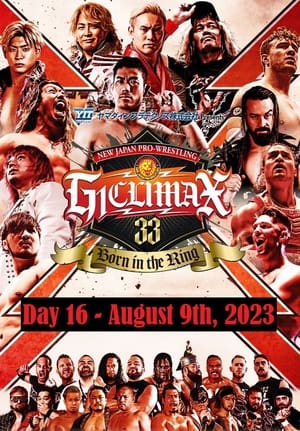 7.4
7.4NJPW G1 Climax 33: Day 16(ja)
The sixteenth night of the tournament took place on August 8th, 2023 at Act City Hamamatsu in Naka-ku, Hamamatsu, Shizuoka, Japan.
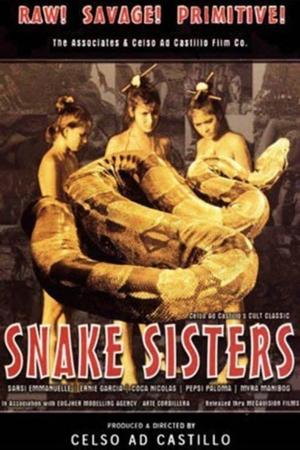 7.0
7.0Snake Sisters(tl)
Three human females born of snake eggs on a secluded island are integrated into a nearby village but are soon showing their true colors.
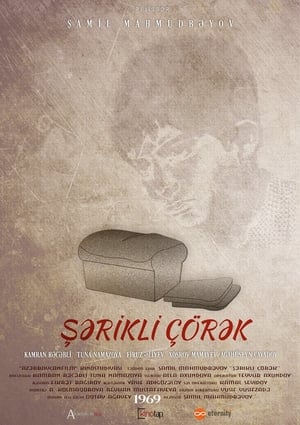 5.8
5.8Shared Bread(az)
While there is famine during WW2, a boy with mom far away, tries to stay strong.
 6.4
6.4A Vineyard Romance(en)
When Seattle magazine writer Samantha Hart is sent home to write an article about the wedding destination of Hawthorne Vineyards, she discovers the ex who broke her heart not only runs the vineyard, but he’s about to get married there.
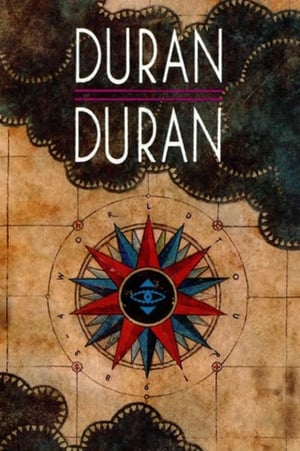 10.0
10.0Duran Duran: Seven And The Ragged Tiger(de)
Seven and the Ragged Tiger is the third studio album by English pop rock band Duran Duran, released globally in November 1983. It would prove to be the last studio album for the band's original lineup until 2004's Astronaut.
 5.2
5.2Acı Dünya(tr)
Yusuf, who attacked seven people with a knife in the middle of the street, begins to tell his life story in court. Yusuf, who was orphaned at a young age, has led a painful life due to poverty. Unable to attend school, he resorted to gambling to make a living. The young man, who was constantly subjected to injustice, pushed around, and spent his youth in prisons, saw his every attempt at redemption shattered. The story of an unhappy gambler whose life was spent in prison, and a woman who escaped from a brothel and sought to return to an honorable life.
Mimosa(fi)
Mimosa is about a girl growing up in an orphanage who tries to make life fun for all the residents. It's a great Easter story, an animated fairy tale about a witch kid and what she's up to in the orphanage while the mother witch whips around with her broom. An excellent animated fairy tale about diversity and tolerance, made in Camilla Mickwitz's typical funny way.
Similar Movies
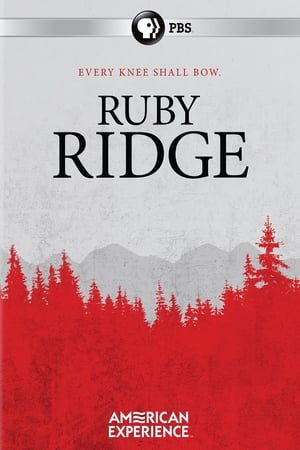 6.6
6.6Ruby Ridge(en)
Shortly before dawn on August 21, 1992, six heavily armed U.S. marshals made their way up to the isolated mountaintop home of Randy and Vicki Weaver and their children on Ruby Ridge in Northern Idaho. Charged with selling two illegal sawed-off shotguns to an undercover agent, Weaver had failed to appear in court and law enforcement was tasked with bringing him in. For months, the Weavers had been holed up on their property with a cache of firearms, including automatic weapons. When the federal agents surveilling the property crossed paths with members of the family, a firefight broke out. The standoff that mesmerized the nation would leave Weaver injured, his wife and son dead, and some convinced that the federal government was out of control. Drawing upon eyewitness accounts, including interviews with Weaver’s daughter, Sara, and federal agents involved in the confrontation, Ruby Ridge is a riveting account of the event that helped give rise to the modern American militia movement.
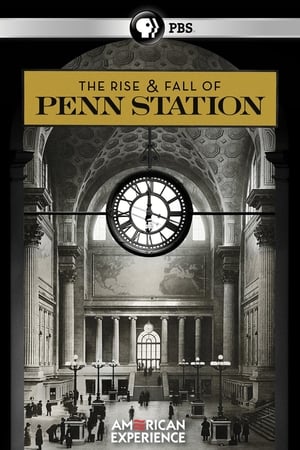 9.5
9.5The Rise & Fall of Penn Station(en)
In 1910, the Pennsylvania Railroad successfully accomplished the enormous engineering feat of building tunnels under New York City's Hudson and East Rivers, connecting the railroad to New York and New England, knitting together the entire eastern half of the United States. The tunnels terminated in what was one of the greatest architectural achievements of its time, Pennsylvania Station. Penn Station covered nearly eight acres, extended two city blocks, and housed one of the largest public spaces in the world. But just 53 years after the station’s opening, the monumental building that was supposed to last forever, to herald and represent the American Empire, was slated to be destroyed.
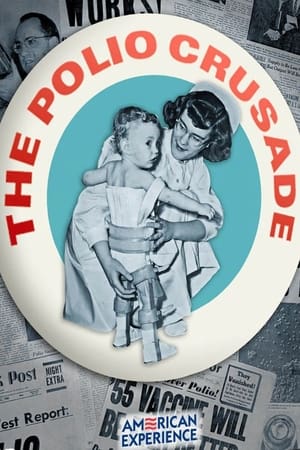 0.0
0.0The Polio Crusade(en)
The film interweaves the personal accounts of polio survivors with the story of an ardent crusader who tirelessly fought on their behalf while scientists raced to eradicate this dreaded disease. Based in part on the Pulitzer Prize-winning book Polio: An American Story by David Oshinsky, Features interviews with historians, scientists, polio survivors, and the only surviving scientist from the core research team that developed the Salk vaccine, Julius Youngner.
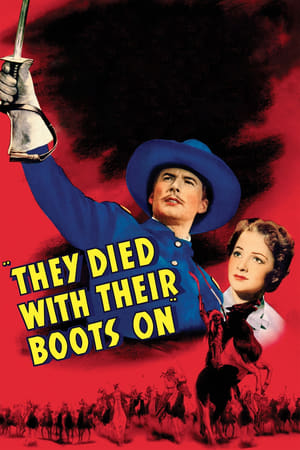 6.6
6.6They Died with Their Boots On(en)
The story follows General George Armstrong Custer's adventures from his West Point days to his death. He defies orders during the Civil War, trains the 7th Cavalry, appeases Chief Crazy Horse and later engages in bloody battle with the Sioux nation.
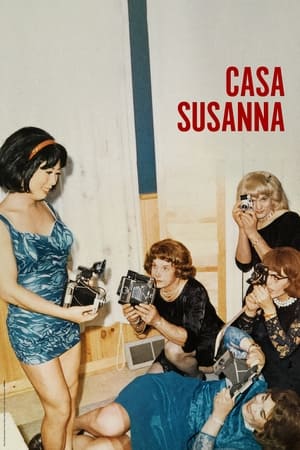 7.9
7.9Casa Susanna(en)
In the 50s and 60s, deep in the American countryside at the foot of the Catskills, a small wooden house with a barn behind it was home to the first clandestine network of cross-dressers. Diane and Kate are now 80 years old. At the time, they were men and part of this secret organization. Today, they relate this forgotten but essential chapter of the early days of trans-identity. It is a story full of noise and fury, rich in extraordinary characters, including the famous Susanna, who had the courage to create this refuge that came to be known as Casa Susanna.
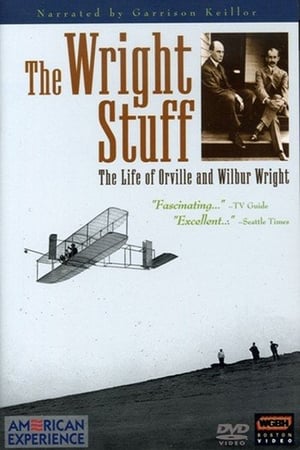 0.0
0.0The Wright Stuff(en)
On August 8, 1908, at a racetrack outside Paris, Wilbur Wright executed what was, for him, a routine flight: a smooth take-off banking into a couple of tight circles, ending in a perfect landing. The flight took less than two minutes, but it left spectators awestruck. While the combined talents of Wilbur and Orville Wright had produced the first plane capable of controlled flight , their distrust of others had almost cost them the credit for their invention. Now, having proved to the public that they had mastered the sky, the reserved brothers from the small town of Dayton, Ohio, became world celebrities.
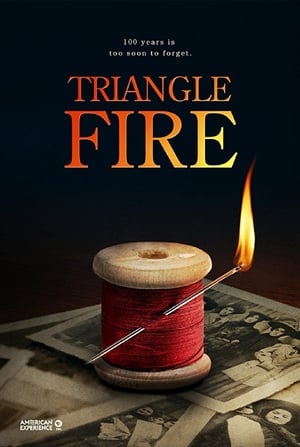 7.0
7.0Triangle Fire(en)
The Triangle Fire chronicles the 1911 fire at the Triangle Shirtwaist Factory in New York City killing one hundred and forty-eight young women and forever changed the relationship between labor and industry in the United States.
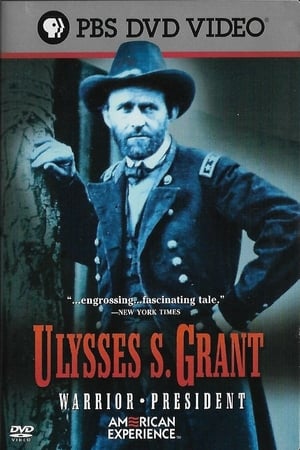 0.0
0.0Ulysses S. Grant(en)
As a general, he had fought to preserve the Union. As president, he helped to oversee the transformation from union to nation. As a former president, he was the embodiment of the very idea of national union, and of America's entry onto the world stage. As a dying general, he was the symbol of the nation's greatest and most traumatic war. The story of Ulysses S. Grant's life, from his first days on the Ohio frontier to his last days out-writing death in the Adirondacks, is an endlessly fascinating one. Few public figures have ever held a such a firm grip on the American popular imagination. Grant was a man whose rise from obscurity made him a hero to millions who could see themselves in him. An ordinary man who faced and met extraordinary challenges, his successes and failures seemed to encapsulate the national character. He was so popular with the American public that, despite his two scandal-ridden terms as president, he was nearly nominated to run for a third term.
 0.0
0.0American Experience: Ulysses S. Grant (Part 2)(en)
As a general, he had fought to preserve the Union. As president, he helped to oversee the transformation from union to nation. As a former president, he was the embodiment of the very idea of national union, and of America's entry onto the world stage. As a dying general, he was the symbol of the nation's greatest and most traumatic war. The story of Ulysses S. Grant's life, from his first days on the Ohio frontier to his last days out-writing death in the Adirondacks, is an endlessly fascinating one. Few public figures have ever held a such a firm grip on the American popular imagination. Grant was a man whose rise from obscurity made him a hero to millions who could see themselves in him. An ordinary man who faced and met extraordinary challenges, his successes and failures seemed to encapsulate the national character. He was so popular with the American public that, despite his two scandal-ridden terms as president, he was nearly nominated to run for a third term.
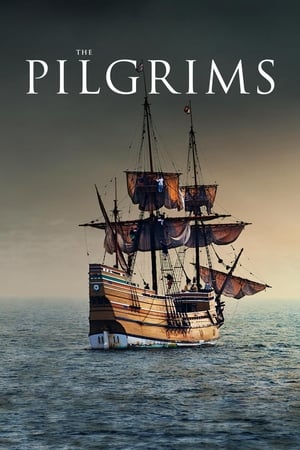 7.7
7.7The Pilgrims(en)
Arguably one of the most fateful and resonant events of the last half millennium, the Pilgrims journey west across the Atlantic in the early 17th century is a seminal, if often misunderstood episode of American and world history. The Pilgrims explores the forces, circumstances, personalities and events that converged to exile the English group in Holland and eventually propel their crossing to the New World; a story universally familiar in broad outline, but almost entirely unfamiliar to a general audience in its rich and compelling historical actuality. Includes the real history of the "first thanksgiving".
 6.0
6.0Reagan(en)
In 1988, after two terms in office, Ronald Reagan left the White House one of the most popular presidents of the twentieth century -- and one of the most controversial. A failed actor, Reagan became a passionate ideologue who preached a simple gospel of lower taxes, less government, and anti-communism.
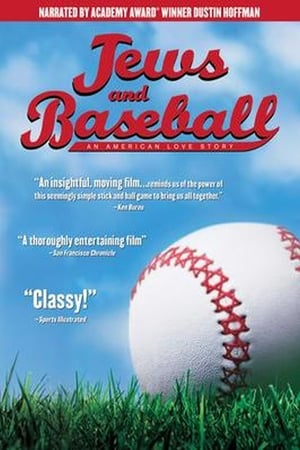 6.0
6.0Jews and Baseball: An American Love Story(en)
Actor Dustin Hoffman narrates this decade-spanning documentary that highlights the contributions of Jewish Americans to the most American sport of them all: baseball. Highlights include a rare interview with legendary pitcher Sandy Koufax.
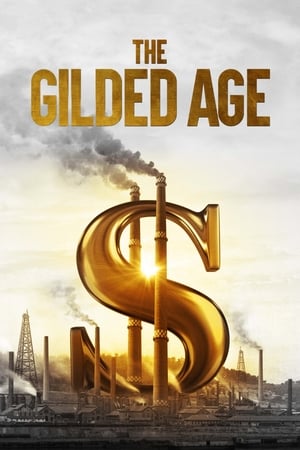 8.0
8.0The Gilded Age(en)
In the closing decades of the nineteenth century, during what has become known as the Gilded Age, the population of the United States doubled in the span of a single generation. As national wealth expanded, two classes rose simultaneously, separated by a gulf of experience and circumstance that was unprecedented in American life. These disparities sparked passionate and violent debate over questions still being asked in our own times: How is wealth best distributed, and by what process? Does government exist to protect private property or provide balm to the inevitable casualties of a churning industrial system? The outcome of these disputes was both uncertain and momentous, and marked by a passionate vitriol and level of violence that would shock the conscience of many Americans today.
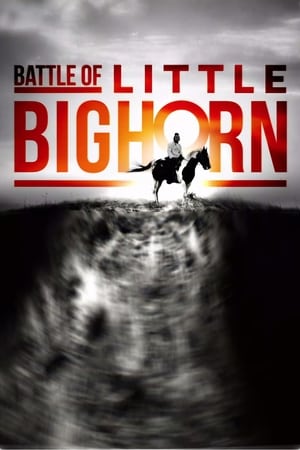 7.8
7.8Battle of Little Bighorn(en)
A comprehensive look at the events leading up to the Battle of the Little Bighorn as well as the myths and legends it spawned, and its impact on history.
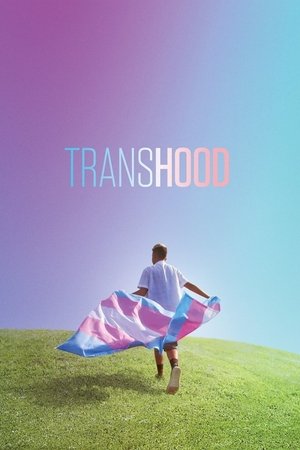 5.5
5.5Transhood(en)
Filmed over five years in Kansas City, this documentary follows four transgender kids – beginning at ages 4, 7, 12, and 15 – as they redefine “coming of age.” These kids and their families show us the intimate realities of how gender is re-shaping the family next door in a unique and unprecedented chronicle of growing up transgender in the heartland.
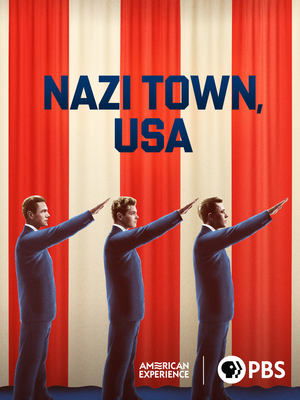 8.2
8.2Nazi Town, USA(en)
In February 1939, more than 20,000 Americans filled Madison Square Garden for an event billed as a “Pro-American Rally.” Images of George Washington hung next to swastikas and speakers railed against the “Jewish controlled media” and called for a return to a racially “pure” America. The keynote speaker was Fritz Kuhn, head of the German American Bund. Nazi Town, USA tells the largely unknown story of the Bund, which had scores of chapters in suburbs and big cities across the country and represented what many believe was a real threat of fascist subversion in the United States. The Bund held joint rallies with the Ku Klux Klan and ran dozens of summer camps for children centered around Nazi ideology and imagery. Its melding of patriotic values with virulent anti-Semitism raised thorny issues that we continue to wrestle with today.
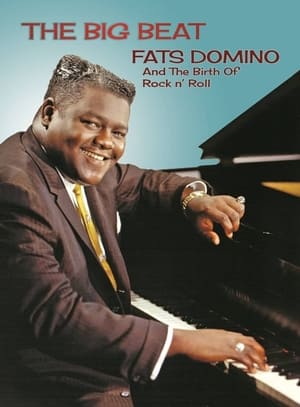 2.0
2.0Fats Domino and The Birth of Rock ‘n’ Roll(en)
One of the most popular rockers of the 1950s and early 60s, Fats Domino and his record sales were rivaled then only by Elvis Presley. With his boogie-woogie piano playing rooted in blues, rhythm & blues, and jazz, he became one of the inventors, along with Presley, Chuck Berry, Jerry Lee Lewis and Little Richard, of rock ‘n’ roll, a revolutionary genre that united young black and white audiences.
Truman(en)
He was a farmer, a businessman, an unknown politician who suddenly found himself president. Of all the men who had held the highest office, Harry Truman was the least prepared, but would prove to be a surprise.
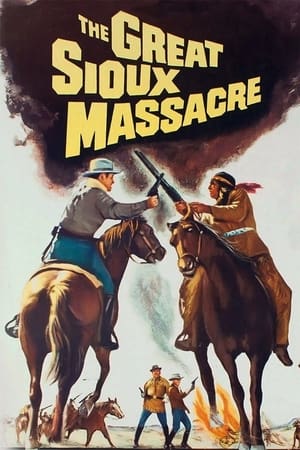 4.2
4.2The Great Sioux Massacre(en)
Colonel Custer, an outspoken believer in fair treatment for the Indians, is ousted from his post and forced into retirement. Fueled by ambition when a Senator Blaine convinces him to run for President, Custer decides to upstage General Terry at Little Big Horn.
 5.9
5.9The Massacre(en)
The story of the massacre of an Indian village, and the ensuing retaliation.
